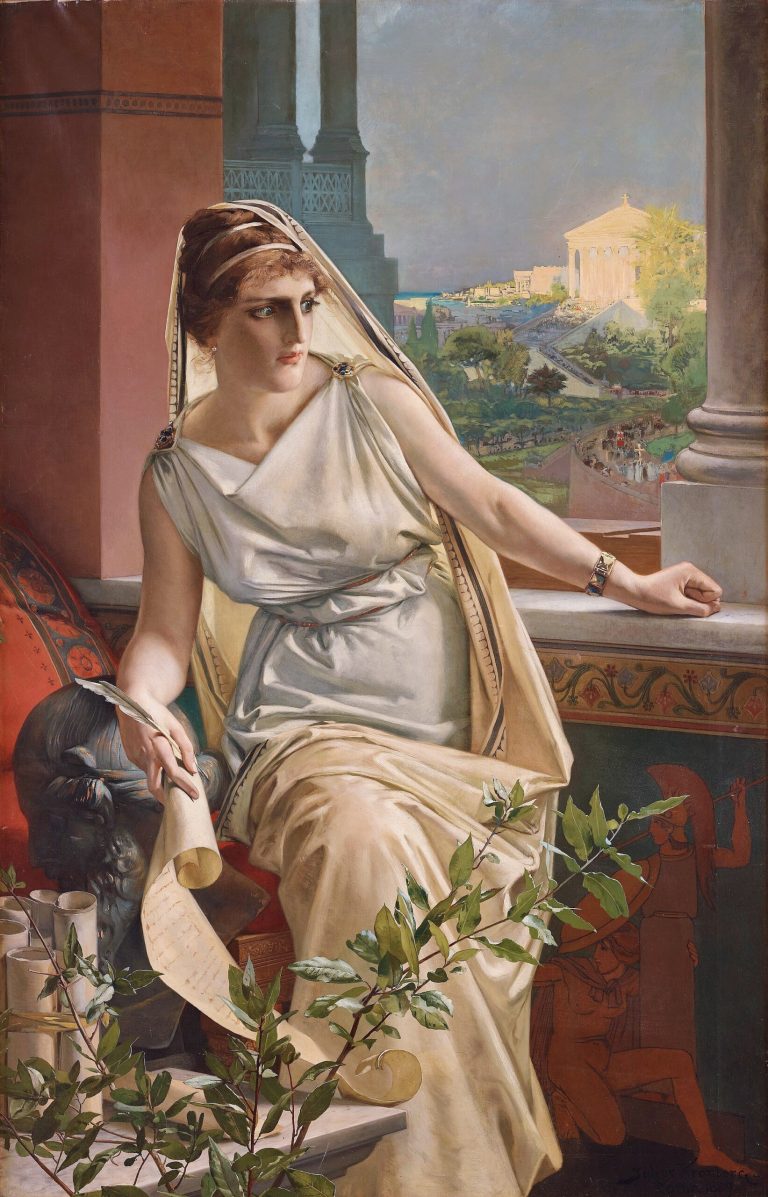Date of Birth: c. 360 CE
Zodiac Sign: Unknown
Date of Death: 415 CE
Biography
Hypatia was a prominent philosopher, mathematician, and astronomer in ancient Alexandria, Egypt. She was born around 360 CE and became a leading thinker of the Neoplatonic school of philosophy in the city. Hypatia is often considered one of the earliest female mathematicians whose work contributed significantly to the intellectual life of Alexandria. She was the daughter of Theon of Alexandria, a noted mathematician, and astronomer who educated her in a variety of subjects, including mathematics, astronomy, and philosophy. Hypatia is best known for her work on the development of mathematical and astronomical theories. She edited and wrote commentaries on several important scientific texts, including Diophantus’s “Arithmetica” and Ptolemy’s “Almagest.” These works helped preserve and expand upon the knowledge of earlier mathematicians and astronomers. Hypatia’s intellectual pursuits and her position as a woman in a male-dominated field made her a unique and influential figure. She was also a teacher and mentor to many students, including Synesius of Cyrene, who later became a bishop and wrote extensively about his admiration for her. Tragically, Hypatia’s life was cut short in 415 CE when she was murdered by a mob of Christian zealots. Her death marked a significant moment in the decline of classical scholarship in Alexandria and the rise of religious intolerance in the region.
5 Interesting Facts about Hypatia
1. Hypatia was one of the first women to study and teach mathematics and philosophy in ancient times.
2. She is often credited with inventing the hydrometer, an instrument used to measure the density of liquids.
3. Hypatia’s works and teachings influenced many future scholars, including her student Synesius, who became a significant figure in early Christian thought.
4. She was a prominent figure in the intellectual community of Alexandria and was respected by both pagans and Christians for her knowledge and wisdom.
5. Hypatia’s murder is often seen as a symbol of the conflict between science and religion, as well as the dangers of religious extremism.
5 Most Interesting Quotes from Hypatia
1. “Reserve your right to think, for even to think wrongly is better than not to think at all.”
2. “All formal dogmatic religions are fallacious and must never be accepted by self-respecting persons as final.”
3. “Fables should be taught as fables, myths as myths, and miracles as poetic fantasies. To teach superstitions as truths is a most terrible thing.”
4. “To teach superstitions as truths is a most terrible thing. The child mind accepts and believes them, and only through great pain and perhaps tragedy can he be in after years relieved of them.”
5. “Life is an unfoldment, and the further we travel the more truth we can comprehend. To understand the things that are at our door is the best preparation for understanding those that lie beyond.”
Highest Net Worth Achieved
There is no historical record of Hypatia’s net worth. Ancient scholars typically did not accumulate wealth in the way modern figures might, as their contributions were often intellectual rather than financial.
Children
There are no historical records indicating that Hypatia had any children. Her life was dedicated to her intellectual pursuits and teachings.
Relevant Links
1. [Hypatia – Wikipedia](https://en.wikipedia.org/wiki/Hypatia
2. [Hypatia – Britannica](https://www.britannica.com/biography/Hypatia
3. [The Life of Hypatia – Project Continua](http://www.projectcontinua.org/hypatia/
5. [Hypatia – Stanford Encyclopedia of Philosophy](https://plato.stanford.edu/entries/hypatia/


